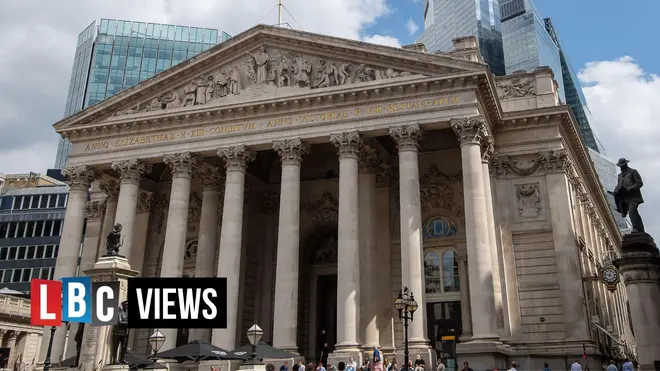
Paul Brand 3pm - 6pm
5 October 2023, 21:04

There has been so much discussion in recent months about large IPOS generally be offered on the sacrificial altars of the NYSE or the NASDAQ rather than on the London Stock Exchange. The reasons are diverse and many in number.
Firstly, New York has far greater access to the global wholesale investment community, including fund managers, than we do here in the UK. This is frustrating and disappointing for lead banks in London, with the best lawyers, and accountants on the globe that they have lost out and will continue to lose out with the very large ‘cap’ IPOS continuing to head to New York, rather than here.
Why? – because, due to the significant weight of money, valuations for these companies tend to have a 30% higher valuation in the US than they do here. Contrary to public opinion, Brexit, often considered the ‘bogeyman’, has had very little to do with the commercial decisions made.
However, in all fairness, Birkenstock, the German fashion footwear titan’s decision to head for New York with its $9.2 billion IPO in a couple of weeks’ time, does have a slightly acrid stench of Brexit vitriol about it, by floating in New York, rather than giving London a shot at its public offering.

However, against this unappetising background for new issues, it will not have escaped investor’s notice that in a recent poll conducted by ‘The Global Financial Centres Index’, London is in hot pursuit of New York as the leading financial services centres in the world, and I hasten to add neither Paris nor Frankfurt feature in the top ten. Whereas it is generally accepted that London’s main prowess is in foreign exchange, derivative trading, and fund management.
Unfortunately, IPO business experienced parsimonious levels of activity this year, as has been the case in New York. Raising large amounts of capital by way of a public quotation is expensive. Investors have generally experienced adverse economic conditions this year, especially due to galloping inflation and rising interest rates. Unsurprisingly, confidence has been in limited supply and investors’ appetite for risk has been at a very low ebb.
On the 14th September 2023 to a fanfare of trumpets and bruhaha, Arm, the UK’S largest chipmaker, owned by Japan’s Softbank took its bow on New York’s NASDAQ, which at the time of writing, is up 27%, year to date, thanks to the ebullient performance during the last ten months of the likes of Nvidia (+207%), Tesla (+141%), Meta (+144%), Uber (+77%), Alphabet (+51%), Amazon (+47%) and Apple (+38%).
Not for the first time the issuing banks did not err on the side of caution in pricing Arm’s shares in the current precarious financial climate, which immediately went to a premium of 25% on the first day of trading to $63.59. However, they have drifted back to $53.46 in the past three weeks – down 15%.
Arm has attracted interest from so many large companies such as Nvidia, which attempted to buy the chipmaker ahead of the float, Amazon, Google, Apple and other potential business partners. So, the market has little doubt that ARM will do well in the future. It is interesting to note that New York’s other large cap listing, Kenvue, valued at $34 billion is down 26% year to date.

UK investors, who missed out on the Arm listing, might be provided with an opportunity to get involved with a secondary issue in the future. It might also be folly to think that ARM, despite the company making fabulous chips for phones, cars, and other equipment, is not necessarily in an unassailable position. There is competition out there in the form of China’s Risc-V, a rival chip design that is backed by some of Arm’s own customers.
IPO activity this year has been pitiful. According to EY, the total value of global floats has fallen by 32%, with only £84 billion being raised. Here in Old Blighty over the last nine months 23 companies listed in the UK raising £953 million against 34 such listings last year totalling £1.16 billion. Cab Payments was the UK’s largest IPO, valued at £896 million.
However, so much for doom and gloom; there is more than a glimmer of hope for the future. The LSE is hopeful that the challenger Bank, Redwood is set to go public after R8 Capital’s reverse takeover. It is hoping to raise about £20 million in the weeks to come. Also AIM is enthusiastic that Microsalt, a food technology expert, valued at £10-£15 million will also invite retail applications of £500 per investor. Shares can be purchased at PrimaryBid’s website ahead of its London IPO, with up to a total of £2.5million allocated to retail investors.
In addition to those offerings, Aquis Stock Exchange also has an active pipeline of companies keen to utilise a UK public market. They are due to have a new joiner next week, one of which is Substrate AI, a Spanish Artificial Intelligence company. This listing will undoubtedly lift its profile, particularly with London's investment community. Growth has been meteoric, with a 787% increase in turnover from €450,000 to €4.76 million between 2019 and 2022.
Aquis also has three other companies ready to float, hopefully in October - Adsure Services PLC a holding company for TIAA Limited and is a specialist business assurance provider operating across the Housing. Blackpoint Biotech PLC looks another exciting prospect. It is a medical cannabinoids company established to fulfil gaps in the medical cannabis market healthcare, Government, Education, Charities, and other sectors. Finally, Mydecine Innovations Group Inc is an emerging biotech and life sciences company dedicated to developing and commercialising innovative solutions for treating mental health problems and enhancing wellbeing. There are many more floats in the offing over the next year for all London’s exchanges.
So, the future for London as a leading centre to raise capital for aspiring and innovative ventures looks positive, so long as reasonable market conditions prevail.